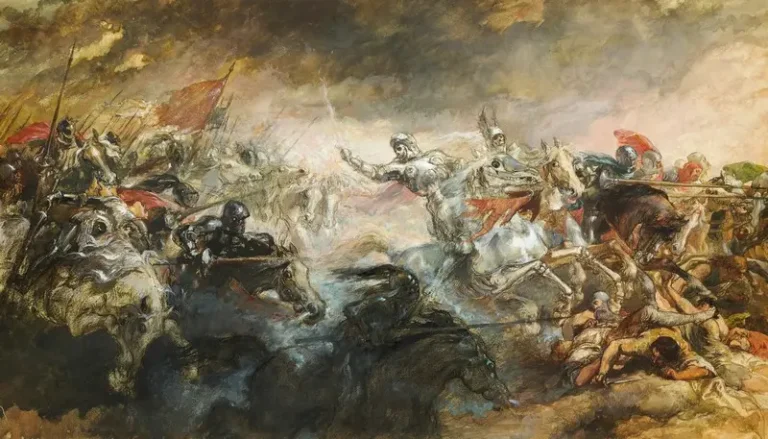Table of Contents
- Introduction
- Defining Social Mobility and the Role of Cultural Capital
- Art as a Medium for Acquiring Embodied Cultural Capital
- Art Education and Institutionalized Cultural Capital
- The Role of Art in Building Social and Symbolic Capital
- Art as a Platform for Critical Consciousness and Social Agency
- Art Careers and the Creative Economy
- Challenges and Limitations
- Strategies for Enhancing the Role of Art in Social Mobility
- Conclusion
Introduction
Social mobility—the ability of individuals or families to move between social strata—is a central concern in contemporary sociology. Traditionally, mechanisms for upward mobility have included formal education, occupational advancement, and the accumulation of economic capital. These structural factors, while significant, do not wholly account for the complex processes by which individuals navigate and sometimes overcome class-based barriers. Increasingly, sociologists are turning their attention to the cultural domain to understand alternative and supplementary mechanisms of mobility. Within this context, the arts have emerged as a powerful, though often underestimated, vehicle for enabling upward social movement.
This article explores the multifaceted relationship between art and social mobility. It discusses how artistic engagement contributes to the accumulation of cultural, social, and symbolic capital, facilitates the development of critical consciousness, and opens new avenues for recognition and career development. Drawing from theoretical frameworks and practical implications, the article underscores the transformative power of art in promoting equity and social change.
Defining Social Mobility and the Role of Cultural Capital
Sociologists have long debated the dynamics of social mobility and the interlocking systems that facilitate or inhibit upward movement across class boundaries. While economic and institutional supports are essential, the role of culture—especially as articulated through the concept of cultural capital—offers a compelling lens to understand how individuals advance socially.
Understanding Cultural Capital
Pierre Bourdieu introduced the concept of cultural capital to describe non-economic resources that enable individuals to navigate social structures and gain advantages. Cultural capital exists in three interrelated forms:
- Embodied cultural capital: This refers to long-lasting dispositions of the mind and body, including language use, comportment, artistic tastes, and interpersonal styles. These qualities are internalized through socialization.
- Objectified cultural capital: These are tangible cultural goods such as artworks, instruments, books, and technologies that signify cultural competence.
- Institutionalized cultural capital: This form includes academic qualifications, certifications, and credentials that provide social legitimacy and professional value.
The acquisition of cultural capital is often class-dependent. However, artistic engagement—whether formal or informal—can provide avenues for accumulating cultural capital outside conventional elite settings. Art becomes not only a mode of expression but also a social asset that enables individuals to access new forms of status and mobility.
Art as a Medium for Acquiring Embodied Cultural Capital
Artistic participation plays a significant role in the development of embodied cultural capital. When individuals engage in creative practices such as painting, music, theatre, or dance, they acquire skills and dispositions that are recognized and often rewarded in dominant social spaces. These include:
- Enhanced visual and spatial reasoning
- Advanced emotional intelligence and empathy
- Confidence in public performance and communication
- Nuanced aesthetic judgment and appreciation
Importantly, these attributes are transferable across multiple domains of social life. A young person from a marginalized background involved in a youth orchestra, for instance, may gain not only musical skills but also discipline, teamwork, and an understanding of formal etiquette. These embodied qualities align closely with the dispositions valorized in educational institutions and professional environments.
Moreover, participation in artistic endeavors can lead to what Bourdieu termed a transformation of habitus—a restructuring of the internalized set of dispositions that shape how individuals perceive and engage with the social world. This transformation enhances one’s capacity to interact with institutional agents such as educators, employers, and cultural intermediaries, thereby facilitating greater social mobility.
Art Education and Institutionalized Cultural Capital
Art education offers a formalized pathway for the acquisition of institutionalized cultural capital. Participation in structured programs—whether in school curricula, private lessons, or community initiatives—can yield recognized qualifications and accolades. These credentials serve as markers of cultural competence and are frequently leveraged in higher education admissions and job markets.
Art education also contributes to broader academic and developmental outcomes. Numerous studies and pedagogical reports have highlighted the benefits of arts integration in schools, including:
- Higher standardized test scores and academic achievement
- Increased student engagement and school attendance
- Improved cognitive functions such as memory and critical thinking
In contexts where traditional academic pathways may be perceived as alienating or inaccessible, the arts provide an alternative mode of learning that validates diverse intelligences and ways of knowing. For students from working-class or marginalized communities, this validation can be transformative, offering a sense of belonging and purpose within educational spaces that have historically excluded them.
The Role of Art in Building Social and Symbolic Capital
Get the full article AD FREE. Join now for full access to all premium articles.
View Plans & Subscribe Already a member? Log in.





